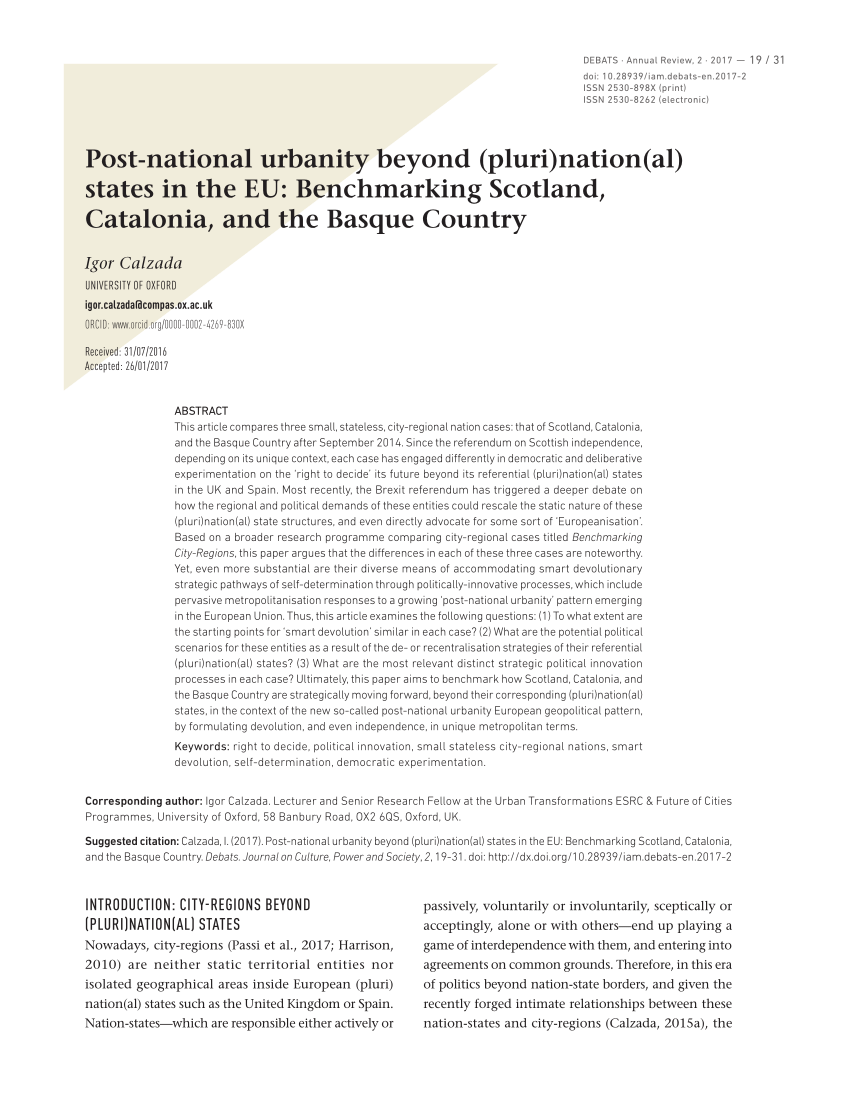
16 May ‘Urbanitat postnacional més enllà de l’estat (pluri)nacio(nal) en la UE: comparant Escòcia, Catalunya i el País Basc,’ article published in the journal Debats. Revista de cultura, poder i societat (*in Catalan)
Abstract:
This article compares the three small nation cases of Scotland, Catalonia, and the Basque Country after 2014, a remarkable year for the European Union. Since the referendum on Scottish independence in September 2014, depending on its unique context, each city-regional small nation has engaged in democratic experimentation on the right to decide its future beyond its referential (pluri)nation(al)-states differently from the United Kingdom and Spain. Most recently, the Brexit referendum has triggered a deeper debate on how regional political claims by these European stateless small nations could re-scale the fixed (pluri)nation(al)-states’ structure and even directly affecting the European Union. The differences in each of these three cases is noteworthy; yet, even more substantial are their diverse means of accommodating strategic pathways of self-determination through political innovation processes among current pervasive responses to a growing ‘post-national urbanity’ pattern in the European Union: To what extent is the starting point of the smart devolution for each case similar? What are the potential political scenarios for them as a result of the de/recentralisation attitude of their referential (pluri)nation(al)-states? What are the most relevant strategic political innovation processes? This paper aims to benchmark how Scotland, Catalonia and the Basque Country are strategically moving forward beyond their referential (pluri)nation(al)-states in such a new European geopolitical pattern we can call ‘post-national urbanity’ by formulating devolution and even independence in unique terms. This paper is part of a broader research project entitled ‘Benchmarking City-Regions‘.
To cite the article:
- Calzada, I. (2017), Urbanitat postnacional més enllà de l’estat (pluri)nacio(nal) en la UE: comparant Escòcia, Catalunya i el País Basc, Debats. Revista de cultura, poder i societat 131(1), 51-63. (ISSN: 0212-0585), Special Issue ‘Monogràfic Plurinacionalitat, federalisme i sobiranies a l’Estat espayol: mirades creuades‘.


Sorry, the comment form is closed at this time.